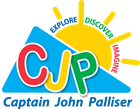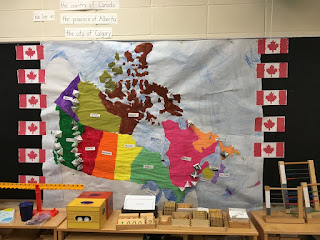We have started into our science exploration of liquids. We kicked off our first day with an exploration of water - the most important liquid in our world. To start our thinking, we moved around the room looking at photographs of where we find water in our world.
We looked at pictures of water in:
-bodies of water (lakes, swamps, oceans, rivers, hot springs)
-buildings (baths, taps, toilets, heating systems)
-our bodies (tears, blood, saliva)
-food (tea, milk, fruit)
-plants
-community (water parks, slides, pools, fire hydrants, water fountains, factories)
Kids had interesting discussions and connections:
-Water helps to transport. Kids made connections about shipping food from hot climates to Canada using boats like we discussed in our seasons unit
-Water is important for habitat for animals
-Water can be changed to steam or ice
-Water is important for cleaning things
-Without water we can't survive
The children were encouraged to look at home and see how water was used.
Next we got our hands wet and explored the nature of water in small groups using a variety of tools such as funnels, sponges, strainers, cups and straws to explore the nature and characteristics of water.
Children stirred, poured, measured, transferred and made amazing observations.
After we made an awesome list of water verbs like: splash, drip, run, spill, splosh....
Today we used blow art to create some crazy hair using liquid paint and straws. This helped us start a conversation about how different liquids have different qualities. We decided that "thin" paint would flow better than thick paint, starting a beginning understanding that liquids have differing viscosities.






















































